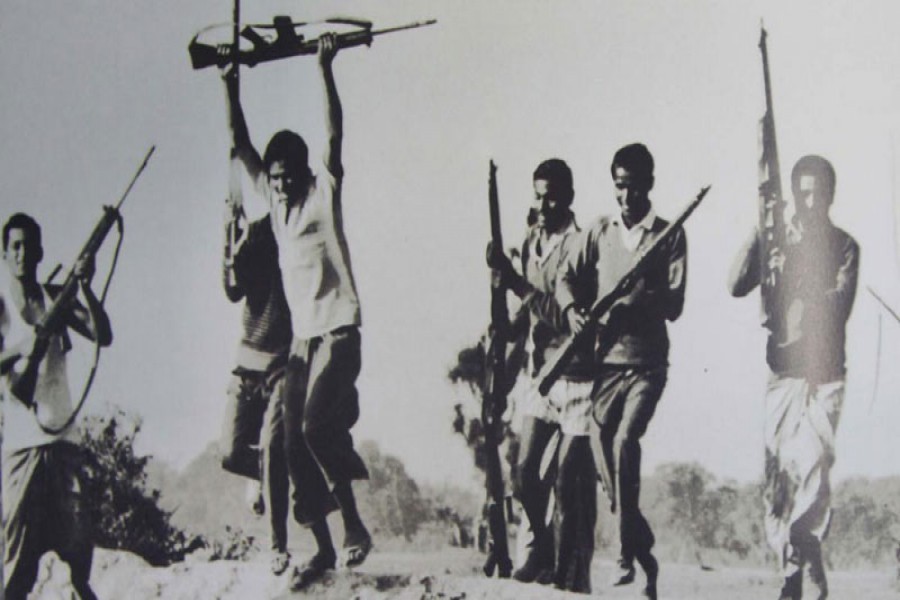At close to 50, Bangladesh is in yet another transition - from a newborn country in the world of the 1970s to its pursuit of an increasingly mature state in the 21st century.
Nostalgic, an old patriot may wish, as Jibananda Das penned down: "I will come again to this Bengal, for the love of its rivers, fields and pastures." Imagine, what would a man feel like, if s/he returns to a completely unknown society in future?
Inevitably, it's time for the generation that is part of the process of liberation of the country to leave the baton to the younger ones. That's where the feelings of the surrealist poet, rooted into the soil of this land, may be justified.
Millions in this country of demographic dividend would need to look back and forth to understand what their country is all about, in search of its soul, and the next destination.
It's not that Bangladeshis would have to see Bangladesh with the eyes of the aliens or the way other nations look at their own statehood. It's rather the responsibility of the countrymen to present their country before the outside world, consciously knowing who they are and accomplishing why they are proud of their motherland.
Duties of the citizens have changed in the meantime. In 1971, the people had to fight a war to secure independence and now, the challenge is to bring the country to the next stage of development, not just economically.
What is domestically called public interest may be defined as national interest while pursuing foreign policy, if it is determined by the owners of the republic.
In Bangladesh, historically, one of the reflections of public demands was writing on the walls, apart from slogans on the campus and talks of small towns and public places in sprawling villages.
In absence of the standard practices these days, the walls have morphed on the social media, which, however, is so crowded that the sole 'independent' voice of each individual can hardly be heard.
Therefore, it requires social studies to know what the masses nowadays dream of and how the emerging generations think about the country and assert their own needs and aspirations.
The rising faces of Bangladesh are yet to be identified, whereas, as this year and in recent years, the country has lost many a reputed personality including freedom fighters and witnesses to history. This will suffer if we fail to transfer some of the critical knowledge and records from one generation to another.
Those who are bridges between the generations are assigned by history to inform the youths why Bangladesh was born. So, evidence and memories of the living beings need to be preserved for independent research by generations to come.
It was a fight for democracy that turned into the 1971 war when attempts were made to suppress the people's mandate. Public anger was already triggered by discrimination - economic, political, cultural, linguistic and so on.
In view of the origin of the political entity of the nation, democracy, equity and justice would be the new generations' optimum expectations.
Thankfully, the nation, which has earned independence at the cost of blood, has attained reputation for its resilience and hospitality. Bangladeshis are, no doubt, blessed with many such qualities so they deserve more
Some of their traits, such as natural talent, are yet to be explored. Bangladesh's potential is not limited either to around 55,000 square kilometres of area. Look at a parcel of land covering about 116 square km - Silicon Valley - which has shaped 'the way we work, live and play' (The BBC).
As the people try to grow, Bangladesh as an independent state would hopefully evolve further, showing more of its magnanimity to other nations.


